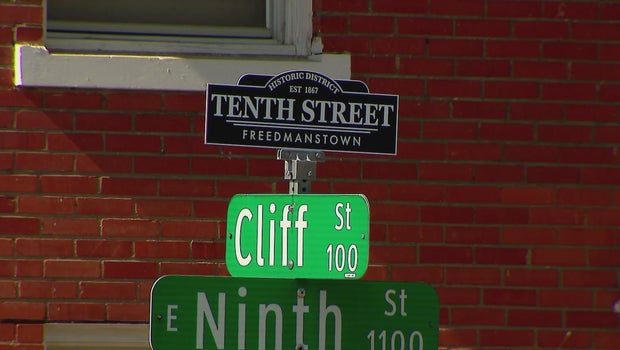A trip through time to the Dallas communities created by Freedmen
DALLAS — Juneteenth commemorates June 19, 1865, the day when more than 250,000 enslaved people in Texas were told they were free.
It came two and a half years after the Emancipation Proclamation. To mark the day, one organization is highlighting the untold stories of the communities the newly emancipated created in Dallas.
Less than three miles from Downtown Dallas sits one of one of the most preserved Freedmen's towns in the country.
"It's kind of been dismissed, many do know but many have dismissed and just covered over it," said Dr. Deborah Hopes, the president of Remembering Black Dallas.
The Tenth Street historic district of Dallas is one of 12 Freedman communities founded in Dallas County following the Civil War. Dr. Sharron Wilkins Conrad is a historian and volunteer for the organization Remembering Black Dallas.
"We are at the corner of 9th Street and Cliff in the Tenth Street neighborhood of Dallas. This is the Greater El Bethel Baptist Church and this was one of the pivotal and important places in the Tenth Street neighborhood," said Conrad.
Land ownership and community were vital for the once enslaved and newly freed.
"The folks were kind of able to create a space and a place where they felt safe where they can educate their children, where they can get away from some of the ravages, the economic ravages of sharecropping and just kind of grow and thrive," said Conrad.
Remembering Black Dallas was awarded a grant by the Library Of Congress to help document the stories of 10th Street. Dr. Deborah Hopes, the organization's president, sees Juneteenth as a moment to reflect and remember that history.
"I get kind of emotional because when you think about it, they got it late, but they still got it and not only did they get it, but they honored it and celebrated it and because they celebrate, I celebrate," said Hopes.
To celebrate the resilience of these communities they created the Ukunika Bus and Walking Tours named after the Zulu word meaning 'to empower" or "give back."
The tours are supported by a City of Dallas Office of Arts and Culture Dallas ArtsActivate grant.
"It's exciting to share these stories with the community because, again, it's our history and in order to understand the way that Dallas looks and the way that Dallas feels today, it's just vital that we hear from these voices that have kind of been overlooked for so long," said Conrad.
Tenth Street was just one of the stops on their sold-out Juneteenth bus tour last weekend.
But another Freedmen community in Dallas was also along the route.
"I was born and raised in Joppy, lived here most of my life," said Kimberly High, the executive director of Joppy Momma's Farm. "My parents grew up here as well, as a matter of fact, the property that we're standing on is my great-grandmother's who was one of the first settlers here in Joppy from slavery."
The community known as Joppa or Joppy was founded by the Freedmen. High runs Joppy Momma's farm on the land where her ancestors settled.
"We always felt like we were behind and forgotten so to see people come into our community and want to know more about our history. It's exciting to me," said High.
By educating neighbors about this land and the importance of healthy eating she's helping keep the story of Joppy alive.
"We ate off of this property, my grandmother. I used to stand in the door as a kid and watch her go out and harvest our food," said High. "So it's just a good feeling to know that I can come back home and do the things that she was doing and I know that she's smiling on me."
But she's also making sure the seeds Freedmen communities planted all those years ago are still flourishing today.
For more information about Remembering Black Dallas' upcoming Ukunika Bus Tours, click here.
